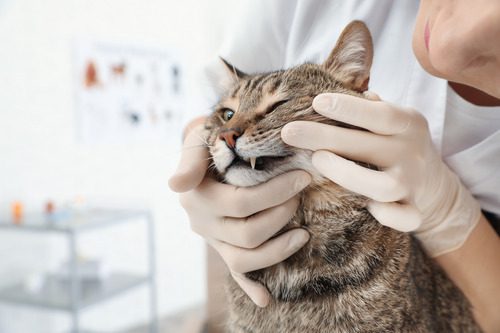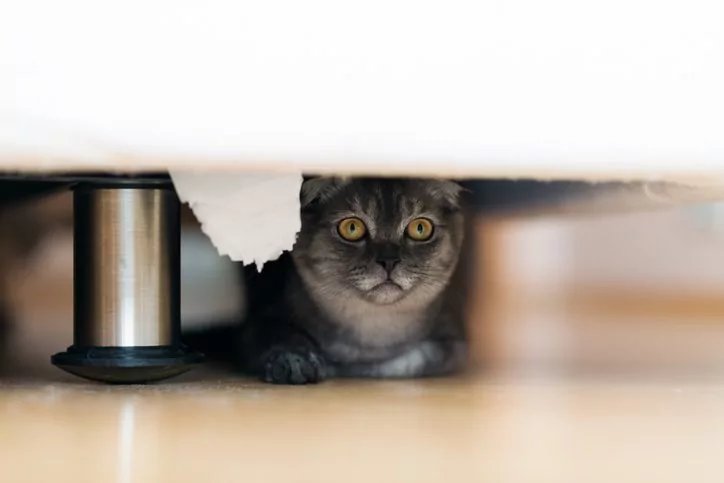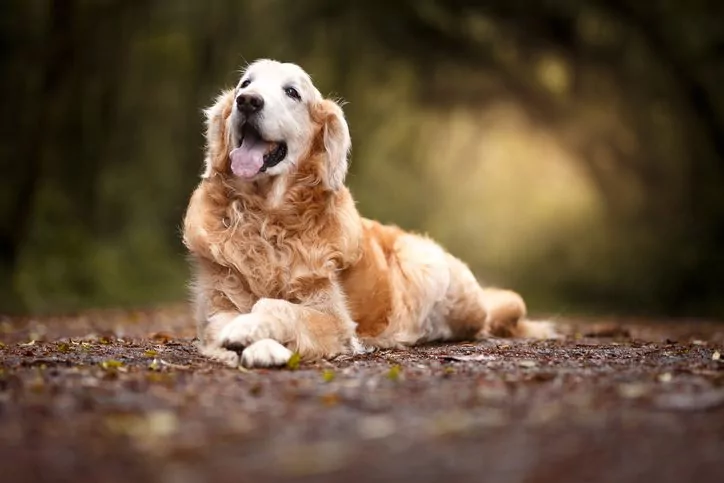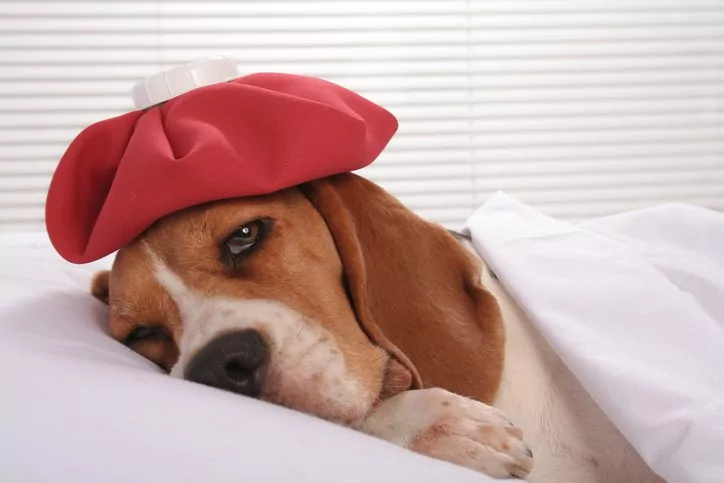Dental Cleaning for Dogs: Why It’s Important
When was the last time you checked your dog’s teeth? If you’re like many pet owners, dental care might not be at the top of your list. However, dental cleaning for dogs is essential for their overall health and well-being. Just like humans, dogs can develop plaque, tartar, gum disease, and even tooth loss if their teeth are neglected. At Bowman Animal Hospital and Cat Clinic in Raleigh, NC, we emphasize the importance of regular veterinary dental cleanings to keep your pet’s mouth healthy. If you have questions or want to schedule a dental cleaning for your dog, call us today at (919) 847-6216.
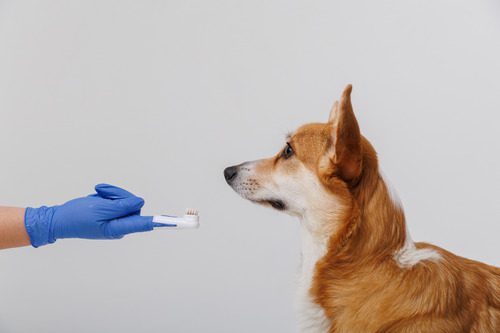
How Dental Disease Affects Your Dog’s Health
Many pet owners don’t realize that poor dental hygiene can lead to more than just bad breath. When plaque and tartar build up on a dog’s teeth, it creates an environment where bacteria thrive. Over time, this can lead to gum disease, infections, and even systemic health issues. Bacteria from dental infections can enter the bloodstream and affect vital organs, including the heart, liver, and kidneys.
Periodontal disease, one of the most common dental conditions in dogs, develops in stages. Early signs include red or swollen gums, bad breath, and yellowish plaque on the teeth. As it progresses, it can cause pain, difficulty eating, tooth loss, and severe infections. If left untreated, dental disease can shorten a dog’s lifespan and reduce their quality of life. Regular dental cleaning for dogs helps prevent these problems and supports long-term health.
The Benefits of Professional Dental Cleaning for Dogs
While brushing your dog’s teeth at home is beneficial, it doesn’t replace the need for professional dental cleanings. Your veterinarian has specialized tools and techniques to remove plaque and tartar from areas that are difficult to reach. A professional dental cleaning for dogs includes a thorough examination, scaling, polishing, and dental radiographs to detect underlying issues.
Prevents Tooth Decay and Gum Disease
Professional cleanings remove plaque and tartar buildup that can lead to cavities and gum disease. By addressing these issues early, you can prevent more severe problems like abscesses and tooth loss.
Reduces Bad Breath
Foul-smelling breath is often a sign of dental disease. A professional cleaning removes bacteria and plaque buildup, leaving your dog’s mouth fresher and healthier.
Improves Overall Health
Since oral bacteria can enter the bloodstream, dental cleanings reduce the risk of systemic infections and organ damage. A healthy mouth contributes to a healthy body.
Enhances Comfort and Quality of Life
Dogs with dental pain may struggle to eat or show signs of discomfort. Routine cleanings prevent painful conditions, allowing your dog to enjoy their meals and play without issues.
What Happens During a Professional Dog Dental Cleaning?
A professional dental cleaning for dogs involves several steps to ensure a thorough and effective cleaning. The procedure is performed under anesthesia to keep your pet safe and comfortable.
Pre-Cleaning Examination
Before the cleaning begins, your veterinarian will perform a full physical examination to assess your dog’s overall health. Bloodwork may be recommended to ensure your dog is healthy enough for anesthesia.
Scaling and Polishing
Your veterinarian will use specialized tools to remove plaque and tartar from the teeth, both above and below the gumline. The teeth are then polished to smooth the surface and reduce future plaque buildup.
Dental X-Rays
Dental x-rays will be taken when your pet is under anesthesia. This helps identify hidden infections, bone loss, or damaged teeth that require further treatment.
Post-Cleaning Care and Recommendations
After the cleaning, your veterinarian will provide guidance on maintaining your dog’s dental health at home. This may include diet recommendations, dental chews, or brushing techniques to help prevent future plaque buildup.
Signs Your Dog Needs a Dental Cleaning
It’s important to recognize the signs that indicate your dog may need a dental cleaning. Some symptoms of dental disease include:
- Persistent bad breath
- Yellow or brown tartar buildup on the teeth
- Red, swollen, or bleeding gums
- Difficulty eating or loss of appetite
- Excessive drooling
- Pawing at the mouth or signs of oral pain
- Loose or missing teeth
If you notice any of these signs, contact Bowman Animal Hospital and Cat Clinic at (919) 847-6216 to schedule a dental checkup.
What are Dental Radiographs?
Pet dental radiographs, also known as pet X-rays, are crucial diagnostic tools that allow veterinarians to view the structures inside your pet’s mouth that are otherwise hidden. These include the roots of the teeth, the bone beneath the gums, and the jaw joints. These images are vital for detecting hidden dental problems such as tooth root infections, embedded foreign objects, tumors, or bone loss.
Why Do Pets Need Dental Radiographs?
Approximately two-thirds of the tooth structure is concealed beneath the gum line and cannot be seen by simply inspecting your pet’s mouth. Dental radiographs provide a clear view under the gum line, allowing for an accurate evaluation of your pet’s dental health.
Together with the physical oral examination, dental radiographs give veterinarians a comprehensive insight into your pet’s oral condition. This complete assessment helps identify any issues and formulate tailored recommendations to maintain and enhance your pet’s dental health, which is vital for their longevity and quality of life.
Exploring Below the Surface
Dental radiographs are invaluable for detecting hidden problems below the gum line, even if the oral examination appears normal. Such issues might include:
- Retained tooth roots
- Unerupted teeth
- Teeth with abscesses
- Bone cysts from diseased teeth
- Bone degradation around tooth roots
Radiographs are also crucial when abnormalities are noted during the oral examination. They allow veterinarians to determine the severity of conditions like tooth fractures, the extent of bone loss, or bone involvement in oral masses.
The Importance of Pet X-Rays
You might question the necessity of conducting full-mouth radiographs during every dental cleaning. Oral examinations alone do not tell the full story of your pet’s oral health. A full series of dental X- rays ensures we provide the best care and outcomes for your pet’s dental and overall health. Since dental assessments require general anesthesia, it’s vital to maximize this opportunity to identify and treat any signs of oral disease early on. This proactive approach not only addresses immediate issues but also slows the progression of dental disease, reducing the frequency of future dental interventions.
Addressing Gum Disease
Dental tartar accumulates at the gum line in pets, fostering bacteria that can advance under the gums, causing inflammation, pain, and infection—known collectively as periodontal disease. This condition can lead to tooth loss and bone damage but is potentially reversible if caught and treated early. Regular dental radiographs are essential as they help catch such developments early, even if last year’s examination showed no issues. By doing so, we can tackle any underlying damage not visible to the naked eye.
Much like their human counterparts, we recommend yearly dental radiographs for pets during each dental check-up to ensure a thorough assessment and maintain optimal oral health.
How to Maintain Your Dog’s Dental Health at Home
In addition to professional cleanings, there are steps you can take at home to maintain your dog’s dental health. A good oral hygiene routine helps reduce plaque buildup and prevents dental disease.
Brushing Your Dog’s Teeth
Brushing your dog’s teeth regularly is one of the best ways to prevent plaque and tartar buildup. Use a pet-safe toothbrush and toothpaste, as human products can be harmful to dogs. Start slow and make brushing a positive experience for your pet.
Providing Dental Chews and Toys
Dental chews and toys designed to clean teeth can help reduce plaque buildup. Look for products approved by the Veterinary Oral Health Council (VOHC) for the best results.
Feeding a Dental-Friendly Diet
Certain dog foods are formulated to promote dental health by reducing plaque accumulation. Your veterinarian can recommend the best diet for your pet’s needs.
Regular Veterinary Checkups
Routine veterinary visits allow your vet to monitor your dog’s oral health and recommend professional cleanings when needed. Preventative care is the key to avoiding serious dental problems.
Click here to see a list of products recommended by the Veterinary Oral Health Council.
Give Your Dog a Healthier Smile
Dental cleaning for dogs is an essential part of their overall health care. Regular cleanings prevent dental disease, improve comfort, and support long-term wellness. At Bowman Animal Hospital and Cat Clinic in Raleigh, NC, we are committed to providing high-quality veterinary dental care for your pet. If you have any concerns about your dog’s oral health or want to schedule a professional cleaning, call us today at (919) 847-6216.
Recent Posts
Firework Safety & Anxiety Relief for Pets This Fourth Of July
Firework Safety & Anxiety Relief for Pets This Fourth of July The Fourth of July is a…
Cat Gingivitis: Symptoms, Causes, and Treatment
Cat Gingivitis: Symptoms, Causes, and Treatment Your cat’s mouth plays a crucial role in their overall health,…
Managing Cat and Dog Anxiety During the Holidays
Managing Cat and Dog Anxiety During the Holidays Let’s face it: our pets are part of our…
Managing and Treating Joint Pain in Senior Pets
Managing and Treating Joint Pain in Senior Pets November is Senior Pet Month, and it’s the purr-fect…
Dog Flu: Recognizing Canine Influenza Symptoms and Care Tips
Dog Flu: Recognizing Canine Influenza Symptoms and Care Tips We know you consider your furry family members…
About Bowman Animal Hospital & Cat Clinic
Established in 1986 by Dr. Gale Bowman, Bowman Animal Hospital and Cat Clinic is dedicated solely to the health and well-being of our pet community. We are a team of compassionate veterinarians and pet lovers who invest our time and resources into providing the very best medical care to your pet.



